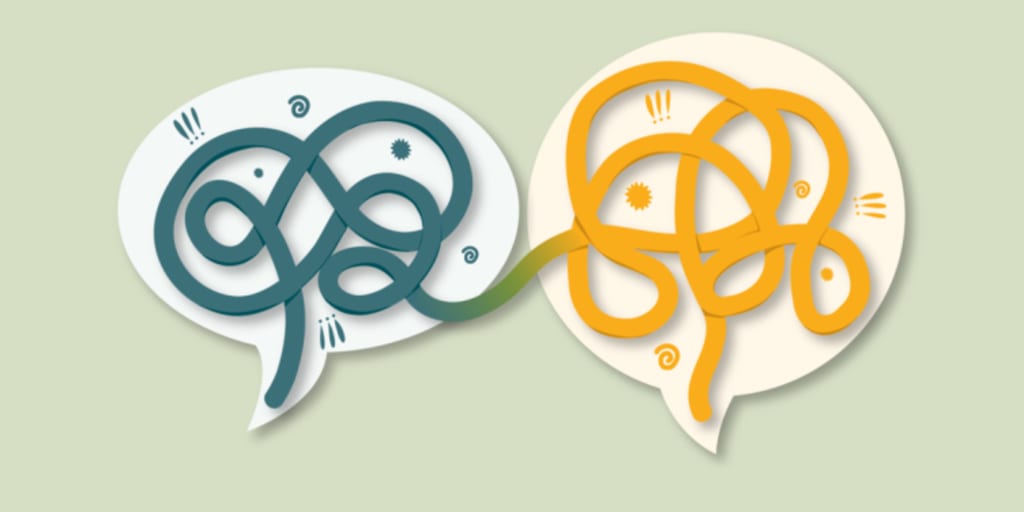
From my experience, most disagreements are born out of miscommunication, whenever you have a person who isn't good at communicating what he or she thinks and another party who isn't keen on filling the gaps left by the former person, there are bound to be disagreements. There are also some disagreements which might arise even when both parties understand each other very well and do have the full backstory, in this specific example I am talking about people who do want the same thing but can't seem to come to an agreement on how to get there.
We all want the world to be a better place, we all want to thrive and to achieve some "fairness", at the very least that's what we want when we collaborate together, so the question becomes, how do we get to that state? That's where the whole trouble begins because everybody has an individual perspective of how to reach there, how to attain the goal.
In a general sense, our opinions can only be based on our experiences, you can't express an opinion on something you have never experienced. Whenever there is a problem or a goal to achieve, we always reach into our memories to get the experiences which relate the most to the situation and make inferences from other similar situations to determine what there is to do in this novel situation. This is why there are disagreements, we don't all have the same experiences, especially persons who are not in the same field or grew up in different circumstances.
If we want to go from point A to point B, everyone will suggest the path they know the best and if they have no experience about the other person's path then it's less likely they will be willing to go for that path, so how do you solve this conflict? It now comes down to the person who is able to be convincing enough.
Overcoming the first hurdle of Communication
This is the first problem which needs to be addressed which will save so much time, when both parties are clearly able to communicate their experience which leads them to pick one direction over the other and the other person is able to assimilate this, then it solves a lot of trouble.
When we are able to share our understanding of our experience, then we are half way gone to solving the problem, but failing to do so most certainly guarantees the problem isn't going to be solved.
In the previous case, if both parties can express the advantages of the path they have chosen then a comparison can be easily made and a choice can be reached, else each party will go their separate way with the feeling that their choice was the best. This is a very common problem and people rarely overcome this first hurdle, we put our emotions above everything and since we don't like when our long held ideas are being challenged, we would rather continue in our wrong beliefs than admitting that we were wrong.
When you have a person who isn't able to communicate clearly their experience and also another party who isn't open to listen, then there are bound to be disagreements. The first solution to resolving conflicts and disagreements is to learn how to communicate better, and also to have an open mind to new ideas.
Idealistic, Realistic, Optimistic, delusional
When experiences are communicated clearly it now becomes a question of interpreting and comparing the different points of view, your perspective has to go against mine for us to determine what is the best course of action and this is done assuming we are aiming for the same objective, this consideration is important to have even before putting the ideas against each other because if one person is aiming for point A and the other is aiming for point B then there is no point pitting the ideas against each other.
There are multiple ways to compare ideas and based on what the end result is you can choose which way to compare them, here are just a few examples;
When trying to solve a problem, you want to go with the idealistic solution,
When trying to bring an idea to life, you choose a more realistic solution,
When you are trying to achieve a future-proof endeavor, then being optimistic might be the way to go,
finally, you can just eliminate the delusional ideas and the other one gets selected by default.
These are just a couple of ways to analyze and compare ideas, there are many more, without even mentioning all the factors which surround every idea, sometimes the lack of information leads us to make uninformed decisions, when you don't have all the facts of a situation or when you make false assumptions.
What's the end goal?
There is this intrinsic joy which comes whenever we are proven right, whenever we win an argument, that gives us some satisfaction and joy knowing that we were successful at even something as small as an argument, unfortunately this makes us sometimes push forward bad ideas even when we know they are not fully understood.
Before any dispute or disagreement, let's first come to a common understanding of what the end goal is, to make sure we are all talking about the same thing or trying to go to the same place. What will be the point of arguing if we aren't even talking about the same thing?
When we can all agree on what the goal is, then we can move ahead with debating our ideas against each other because we both understand what is wanted and it's the same thing. An argument becomes stupid when both parties aren't aiming for the same end goal and yet enter this frenzy to push ideas which aren't contradictory.
Realizing your Vision
There is always a little bit of alienation for the other persons when our vision wins the argument, they feel offended that their idea didn't win the other person over and so unconsciously they will work to undermine your idea, but that's not much of a problem when that idea is able to hold up to your trust.
It wouldn't matter which idea wins if it wasn't for ego, the most important thing is for the goal to be reached at the end of the day and the end justifies the means used. Dissociating our feelings from our rationale is important in order to make informed decisions to address the problem at hand instead of wasting time over arguments which don't need to be. There isn't always an ideal solution and so poking holes into the idea of the other person doesn't necessarily solve anything at the end of the day but just serves to entertain us.
Did I mention that we love arguments? Yeah, we do love arguments, its some form of entertainment and helps us compare each other, when two people enter a fight it becomes bigger than just the ideas being debated but rather goes to become about their reputation. Imagine watching a movie where everything went as planned, that would be pretty boring, but it's the controversies which happen during the movie which keep us entertained.
There are just too many factors which lead us to disagreements, but here is a summary of what you should handle in order to avoid disagreements;
- Clear Communication
- Well-defined end goal
- Unbiased Judgement
Thanks for reading ☺️
Support me on Ko-fi : https://ko-fi.com/realjema
About the Creator
real Jema
If you could say one thing and be heard by the entire world, what would that be?






Comments
There are no comments for this story
Be the first to respond and start the conversation.